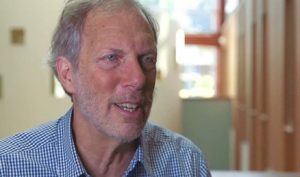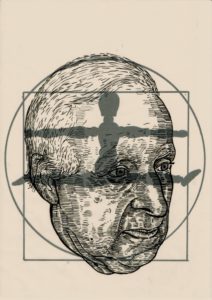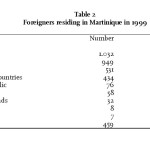If Democrats Can’t Win The Economic Debate, Trump Will Win In 2020
Pundits and economic models predict that if nothing changes in the next two years on the economic front, Donald Trump will be re-elected in 2020 by a bigger margin than in 2016. To be sure, the economy is usually the top priority for voters heading into a presidential election, and the U.S. economy appears on paper to be doing well since Trump moved into the White House. According to the Bureau of Economic Analysis, real gross domestic product (GDP) increased at an annual rate of 3.2 percent in the first quarter of 2019 (real GDP grew by 2.2 percent in the fourth quarter of 2018), and the national unemployment rate is at a low 3.8 percent, with applications for unemployment benefits having declined to a 49-year low.
Nonetheless, while the economy looks strong, the economic condition of most Americans is anything but rosy. And, according to a Federal Reserve’s “Report on the Economic Well-Being of U.S. Households in 2018,” roughly 40 percent of households would not be able to cover a $400 “unexpected expense.”
At the same time, the majority of Americans think that the economic system benefits mostly the wealthy, and want to see the government do something about this situation.
As such, the question is whether Democratic presidential candidates have the vision and the boldness to put structural economic reforms on top of their pre-election campaign. Bernie Sanders and Elizabeth Warren have already positioned themselves as the ideas candidates for fixing the economy, although Wall Street Democrats will clearly oppose both of them. In the absence of a plan to abolish capitalism, drastic reforms to make it more equitable are a necessary precondition for the economic well-being of the majority of people in the U.S. — reforms that would likely prove to be detrimental to the economic interests of the super-rich, who are intent on accumulating ever higher amounts of wealth. Yet, it is unclear what sort of reforms deserve top priority in today’s U.S. economy. To answer that question, we interviewed Robert Pollin, distinguished professor of economics and co-director of the Political Economy Research Institute at the University of Massachusetts-Amherst.
C.J. Polychroniou: Bob, the U.S. economy is said to be booming, although Democrats attribute this fact to the policies of the Obama administration. Firstly, is the U.S. economy in such a good shape as it appears to be on paper? Secondly, for how long can the Democrats go on giving credit to Obama for today’s signs of a strong economy?
Robert Pollin: First of all, based on the most standard measure of overall economic performance, the growth rate of Gross Domestic Product (GDP), the U.S. economy has not been booming under Trump. Indeed, over the two full years under Trump, 2017-18, real economic growth (adjusted for inflation) averaged 2.5 percent per year. This is no better than the average for the full eight years since the Great Recession officially ended in 2010. Over the 57-year period prior to the 2008 Great Recession (1950-2007), U.S. real economic growth averaged 3.4 percent per year. The Trump economy obviously hasn’t come close to reaching this long-term average growth trend.
It is true that the official unemployment rate is at a historic low, at 3.8 percent of the labor force. However, let’s also consider a broader official measure of unemployment coming from the U.S. Labor Department, one which includes both the “underemployed” — i.e., people in part-time positions but seeking full-time work — as well as people who have become discouraged from looking for a job due to lack of success. By this measure, the unemployment rate rises to 7.3 percent. If we also add in the roughly 5 million people who have dropped out of the labor market following the Great Recession, that would bring the unemployment rate to 10.3 percent. So while labor market conditions are indeed far better now than they were 10 years ago, as we were just coming out of the Great Recession, there is still a lot of distress among people trying to get jobs, much less good jobs.
The Obama administration, along with the Federal Reserve, does deserve credit for helping to avoid a total financial collapse in 2008 that could have led to a Depression as severe as the 1930s. Who knows where we would be today if, a decade ago, the unemployment rate had risen to, say 25 percent, as it did in the 1930s, versus 10 percent during the Great Recession.
Noam Chomsky: Trump’s “Economic Boom” Is A Sham
 Donald Trump ran a campaign — and won the 2016 presidential election — based on unorthodox tactics, whereby he used irrational provocation to defy traditional political norms and make a mockery of established beliefs on both domestic and international issues confronting the United States. Amazingly enough, Trump has continued his instinctual political posturing even as president, dividing the nation and causing severe friction with the traditional allies of the U.S. Yet, his unorthodox tactics and irrational leadership style appear to remain a winning formula as current polls indicate that, unless something dramatic happens, Trump may very well be re-elected in 2020 by an even bigger margin.
Donald Trump ran a campaign — and won the 2016 presidential election — based on unorthodox tactics, whereby he used irrational provocation to defy traditional political norms and make a mockery of established beliefs on both domestic and international issues confronting the United States. Amazingly enough, Trump has continued his instinctual political posturing even as president, dividing the nation and causing severe friction with the traditional allies of the U.S. Yet, his unorthodox tactics and irrational leadership style appear to remain a winning formula as current polls indicate that, unless something dramatic happens, Trump may very well be re-elected in 2020 by an even bigger margin.
How do we make sense of Trump’s continuing popularity? Noam Chomsky, one of the most respected public intellectuals alive, shares his insights on Trump’s actions in the exclusive Truthout interview that follows.
C.J. Polychroniou: Noam, I want to start by asking you to reflect on Trump’s political posturing and leadership style and explain to us how this apparently “irrational” president continues to enjoy unquestionable support among nearly half of all voters and has managed to turn the GOP into his own fiefdom.
Noam Chomsky: Whatever one thinks of Trump, he is a highly skilled politician, with a good sense of how to gain popular approval, even virtual worship in some circles. His job approval just passed 50 percent for the first time, according to the latest Zogby poll.
He certainly has taken control of the GOP, to quite a remarkable extent. He’s been very successful with his two constituencies: the primary one, wealth and corporate power; and the voting base, relatively affluent fairly generally, including a large bloc of Christian evangelicals, rural whites, farmers, workers who have faith in his promises to bring back jobs, and a collection of others, some not too admirable.
It’s clear why the primary constituency is mostly delighted. Corporate profits are booming. Wealth continues to be concentrated in very few hands. Trump’s administration is lavishing them with gifts, including the tax bill, the main legislative achievement, across-the-board deregulation, and rapidly increasing fossil fuel production. He and McConnell — in many ways the evil genius of the administration — are packing the judiciary with reactionaries, guaranteeing the interests of the corporate sector and private wealth even after these “glory days” are past. They don’t like his trade wars, which are causing disruption of global supply chains, but so far at least that’s outweighed by his dedicated service to their welfare. Read more
Joseph Roth ~ Die Flucht ohne Ende
 Kapittel 1 ~ Vorwort
Kapittel 1 ~ Vorwort
Im folgenden erzähle ich die Geschichte meines Freundes, Kameraden und Gesinnungsgenossen Franz Tunda.
Ich folge zum Teil seinen Aufzeichnungen, zum Teil seinen Erzählungen.
Ich habe nichts erfunden, nichts komponiert. Es handelt sich nicht mehr darum, zu »dichten«. Das wichtigste ist das Beobachtete.
Paris, im März 1927
Joseph Roth
Kapittel 2
Der Oberleutnant der österreichischen Armee Franz Tunda geriet im August des Jahres 1916 in russische Kriegsgefangenschaft. Er kam in ein Lager, einige Werst nordöstlich von Irkutsk. Es gelang ihm, mit Hilfe eines sibirischen Polen zu fliehen. Auf dem entfernten, einsamen und traurigen Gehöft des Polen, am Rande der Taiga, blieb der Offizier bis zum Frühling 1919.
Waldläufer kehrten bei dem Polen ein, Bärenjäger und Pelzhändler. Tunda hatte keine Verfolgung zu fürchten. Niemand kannte ihn. Er war der Sohn eines österreichischen Majors und einer polnischen Jüdin, in einer kleinen Stadt Galiziens, dem Garnisonsort seines Vaters, geboren. Er sprach polnisch, er hatte in einem galizischen Regiment gedient. Es fiel ihm leicht, sich für einen jüngeren Bruder des Polen auszugeben. Der Pole hieß Baranowicz. Tunda nannte sich ebenso.
Er bekam ein falsches Dokument auf den Namen Baranowicz, war nunmehr in Lodz geboren, im Jahre 1917 wegen eines unheilbaren und ansteckenden Augenleidens aus dem russischen Heer entlassen, von Beruf Pelzhändler, wohnhaft in Werchni Udinsk.
Der Pole zählte seine Worte wie Perlen, ein schwarzer Bart verpflichtete ihn zur Schweigsamkeit. Vor dreißig Jahren war er, ein Strafgefangener, nach Sibirien gekommen. Später blieb er freiwillig. Er wurde Mitarbeiter einer wissenschaftlichen Expedition zur Erforschung der Taiga, wanderte fünf Jahre durch die Wälder, heiratete dann eine Chinesin, ging zum Buddhismus über, blieb in einem chinesischen Dorf als Arzt und Kräuterkenner, bekam zwei Kinder, verlor beide und die Frau durch die Pest, ging wieder in die Wälder, lebte von Jagd und Pelzhandel, lernte die Spuren der Tiger im dichtesten Gras erkennen, die Vorzeichen des Sturms an dem furchtsamen Flug der Vögel, wußte Hagel- von Schnee- und Schnee- von Regenwolken zu unterscheiden, kannte die Gebräuche der Waldgänger, der Räuber und der harmlosen Wanderer, liebte seine zwei Hunde wie Brüder und verehrte die Schlangen und die Tiger. Er ging freiwillig in den Krieg, schien aber seinen Kameraden und den Offizieren schon in der Kaserne so unheimlich, daß sie ihn als einen Geisteskranken wieder in die Wälder entließen. Jedes Jahr, im März, kam er in die Stadt. Er tauschte Hörner, Felle, Geweihe gegen Munition, Tee, Tabak und Schnaps ein. Er nahm einige Zeitungen mit, um sich auf dem laufenden zu halten, glaubte aber weder den Nachrichten noch den Artikeln; selbst an den Inseraten zweifelte er. Seit Jahren ging er in ein bestimmtes Bordell, zu einer Rothaarigen, Jekaterina Pawlowna hieß sie. Wenn ein anderer bei dem Mädchen war, wartete Baranowicz, ein geduldiger Liebhaber. Das Mädchen wurde alt, es färbte seine silbernen Haare, verlor einen Zahn nach dem andern und sogar das falsche Gebiß. Jedes Jahr brauchte Baranowicz weniger zu warten, schließlich war er der einzige, der zu Jekaterina kam. Sie begann ihn zu lieben, das ganze Jahr brannte ihre Sehnsucht, die späte Sehnsucht einer späten Braut. Jedes Jahr wurde ihre Zärtlichkeit stärker, ihre Leidenschaft heißer, sie war eine Greisin, mit welkem Fleisch genoß sie die erste Liebe ihres Lebens. Baranowicz brachte ihr jedes Jahr die gleichen chinesischen Ketten und die kleinen Flöten, die er selbst schnitzte und auf denen er die Stimmen der Vögel nachahmte.
Weiter lesen: https://gutenberg.spiegel.de/die-flucht-ohne-ende-8647/2
Justus de Visser ~ Spagaat óf balans – Een verkenning van de nooit eindigende spanning tussen nationalisme en Europese integratie
Na het succes van Justus de Vissers eerste boek Europa – Dáárom (2014) dat hij afsloot met een krachtig pleidooi voor het wij-gevoel (= samen in de EU), heeft hij nu een boek over het spanningsveld tussen het nationalisme en de Europese integratie geschreven. Spagaat of Balans is een heftig pleidooi om samen op te trekken en het debat met elkaar aan te gaan over de liberale democratie en een halt toe te roepen aan de nationalistische afbraak van de Europese orde. Populisme, Brexit, Catalonië, migratie en terrorisme, Turkije, Midden- en Oost-Europa, Rusland, Oekraïne, Georgië, het nationalisme is overal en ze komen in het boek uitgebreid aan bod, voorzien van vele voetnoten.
Spagaat of Balans is een strijdbaar en informatief naslagwerk voor een ieder die is geïnteresseerd in het hedendaagse Europa en zich wil verdedigen tegen nationalisme, xenofobie en illiberalisme. De Europese waarden als democratie, gelijkheid, vrijheid, mensenrechten en de rechtsstaat staan onder druk en moeten worden verdedigd. De Visser roept op te strijden tegen de politici die de sociale rechtsstaat, die de EU wil zijn, van binnenuit bedreigen.
Justus de Visser, die jarenlang diplomaat voor Nederland is geweest en werkzaam was op het Ministerie van Buitenlandse Zaken, ziet de bedreiging van het herlevend nationalisme niet primair als bedreiging van buiten, maar vooral als het ‘Kwaad’ in ons zelf. De Visser stelt zichzelf de vraag waar de liefde voor het eigen vaderland, dat wat we patriotisme noemen, de zoektocht naar geborgenheid, over gaat in haat tegen de ander, dat nationalisme is (dit onderscheid ontleent hij aan de vroegere Duitse Bondspresident Von Weiszäcker). Nationalisme is voor De Visser vooral een op mythe gebaseerd identiteitsbesef, zoveel verschillen we niet van elkaar. Het nationalisme komt vooral voort uit angst en gebrek aan erkenning en respect en dat brengt agressief gedrag met zich mee. De kiezer wil de natiestaat terug en politici spelen handig in op deze angst- en onlustgevoelens. We trekken steeds meer muren op, fysiek en mentaal. De grenzen komen weer terug en dat levert spanning op met de Europese eenwordingsambitie.
21eeuwse nationalisme leidt tot 21eeuwse machtspolitieke confrontaties, ook buiten Europa. President Trump maakt handig gebruik van nationale gevoelens zonder dat de consequenties zijn te overzien. Wat er buiten de grenzen van Europa gebeurt heeft enorme invloed op Europeanen en daarom moeten wij hechter aaneen sluiten, Europa moet verder integreren, zeker nu Amerika afstand neemt van Europa.
‘We kunnen niet langer volstaan een wetgevingsmachine te zijn, we zullen ook samen geopolitiek moeten gaan bedrijven, veiligheids- en defensiebeleid daaronder begrepen. Er valt geen tijd te verliezen- jammer genoeg is dat besef nog niet levend genoeg’, aldus Justus de Visser. Het is tijd voor een nieuwe politieke daadkracht. Read more
As Capitalism Fails, We Need A Roadmap To Survive Climate Change
As we enter an era of energy transition and the effects of climate change become more dramatic, our need for new forms of economic thinking is becoming increasingly urgent. The existing economic theories and models are clearly ill-equipped to address the intertwined challenges of a massive energy shift and climate change because they are all linked to the era of material abundance and cheap energy resources. The existing economic system has failed and if it continues it will lead to inestimable catastrophic consequences. But what would the policy framework of the much-needed new economics on energy, climate and environment look alike?
C.J. Polychroniou: Dr. Järvensivu, how did your research unit end up producing the background paper for the U.N. Global Sustainable Development Report?
Paavo Järvensivu: BIOS is an independent, multidisciplinary research unit, launched in Helsinki in 2015. Our basic task is to study the effects of environmental and resource factors on Finnish society and develop the anticipatory skills of citizens and decision-makers. To be able to do that, our research, of course, deals with the same issues also globally…. Moreover, we felt that due to the urgency to act on the climate crisis, researchers need to engage much more proactively outside the academic community. We dedicate much of our time on ongoing dialogue with decision-makers, journalists and many others…. There are few [other] research teams that would systematically aim at a comprehensive view of the political, economic and cultural changes caused by mitigating and adapting to climate change.
The paper your research unit produced for the U.N. claims with certainty that we will soon be entering a new energy era. What is this new energy era all about, and how will it replace the capitalism of today, which relies mostly on fossil fuels for supplying the vast majority of our energy needs and, subsequently, for growth?
The question of future energy can be approached as a [carbon] source and [carbon] sink problem. According to some estimates, the depletion of accessible fossil fuels would drive dramatic changes in the human energy system. This is true in a certain time frame, but climate change, or the inability of ecosystems in their current state to handle all the emissions from the excessive use of fossil fuels, gets us there first. Mitigating climate change requires a rapid decarbonization of the energy system — not only electricity generation but also heating/cooling and transportation.
Most likely we need to reduce energy consumption in order to succeed in rapid decarbonization. Replacing fossil fuel infrastructure with low-carbon solutions is such a demanding task physically, financially and organization-wise that the chances for succeeding improve dramatically if we lower overall energy consumption at the same time. This would be in line with also other environmental goals, especially with fostering biodiversity. In practice, this would entail qualitative changes in people’s lives through an emphasis on public transport and walking and biking, and perhaps relaxing on the (very new to humankind) requirement to have the same temperature inside throughout the year.
If the major economies don’t succeed in decarbonization, the global fossil economy is in for a rough ride. As an example, in a world with escalating geopolitical tensions — for instance, due to climate refugees — the position of fossil fuel-importing countries is weakened. Those countries — such as Finland, where I’m from — would be better off with less dependence on fossil fuels. Acting on this proactively, investing a lot on low-carbon infrastructure, should be on the high priority list of current and next governments. Read more
Anna Eijsbouts ~ Voting In The EU
A short film explaining democracy in the EU and the European Parliament and how your vote moves it.
Written by European Constitutional Law Professor Tom Eijsbouts, animated & directed by Anna Eijsbouts.
This film has been made out of necessity and has been funded via Kickstarter.
Credits:
Voice – Gabriella Schmidt
Sound Design – Rik Kooijman
Additional Post Production – Kasper Werther
Thanks to Lot Rossmark, Marlyn Spaaij, Dorien Suntjens, Amber Verstegen, Tünde Vollenbroek, Jamie K. Bolio
Executive Producers – Jan Eijsbouts, Dolf Huijgers, Pieter Jan Kuiper, Laurence Chazournes de Boisson, Kris Spinhoven





